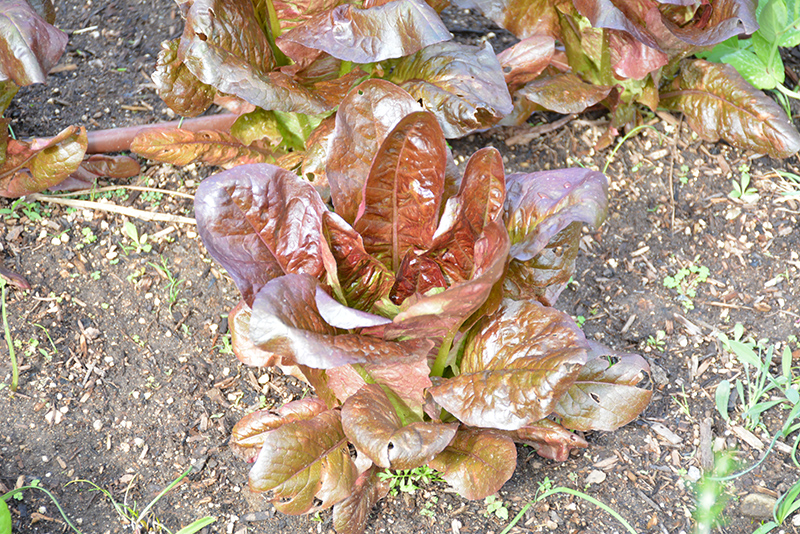Plant Library
Red Romaine Lettuce
Lactuca sativa var. longifolia 'Red Romaine'
Height: 12 inches
Spacing: 12 inches
Sunlight:
![]()
![]()
Hardiness Zone: (annual)
Other Names: Rouge d'Hiver Lettuce
Description:
Emerging green and fading to copper red, this variety is visually appealing as well as delicious; long crinkled leaves, sweet and crunchy, perfect for salads and sandwiches; can be grilled if heads are thick enough; great in containers and gardens
Edible Qualities
Red Romaine Lettuce is an annual vegetable plant that is commonly grown for its edible qualities. The large crinkled oval dark red leaves with hints of coppery-bronze which emerge green in spring are usually harvested from early summer to early fall. The leaves have a sweet taste and a crunchy texture.
The leaves are most often used in the following ways:
- Fresh Eating
- Eating When Cooked/Prepared
- Cooking
Planting & Growing
Red Romaine Lettuce will grow to be about 12 inches tall at maturity, with a spread of 12 inches. When planted in rows, individual plants should be spaced approximately 12 inches apart. This vegetable plant is an annual, which means that it will grow for one season in your garden and then die after producing a crop. Because of its relatively short time to maturity, it lends itself to a series of successive plantings each staggered by a week or two; this will prolong the effective harvest period.
This plant is typically grown in a designated vegetable garden. It does best in full sun to partial shade. It does best in average conditions that are neither too wet nor too dry, and is very intolerant of standing water. It is not particular as to soil pH, but grows best in rich soils. It is quite intolerant of urban pollution, therefore inner city or urban streetside plantings are best avoided. This is a selection of a native North American species, and it is considered by many to be an heirloom variety.; however, as a cultivated variety, be aware that it may be subject to certain restrictions or prohibitions on propagation.
Red Romaine Lettuce is a good choice for the vegetable garden, but it is also well-suited for use in outdoor pots and containers. It is often used as a 'filler' in the 'spiller-thriller-filler' container combination, providing a canvas of foliage against which the larger thriller plants stand out. Note that when growing plants in outdoor containers and baskets, they may require more frequent waterings than they would in the yard or garden.





